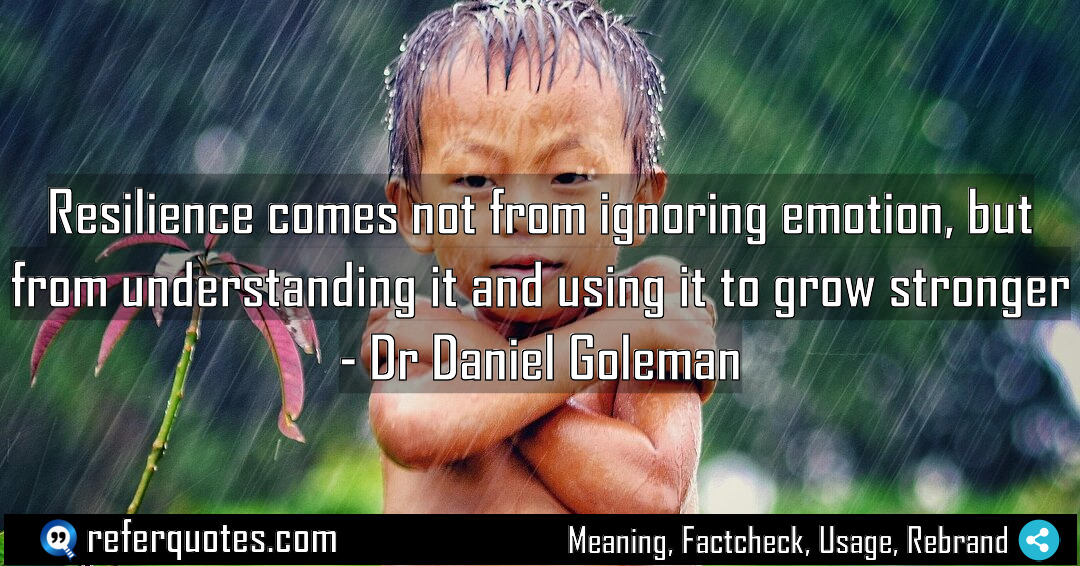You know, that idea that “Resilience comes not from ignoring emotion” is one of those truths that seems counterintuitive until you live it. It’s not about building a thicker skin, but about developing a deeper understanding of what you’re feeling and using that very energy to fortify yourself. It’s the difference between being rigid and being truly, authentically strong.
Share Image Quote:Table of Contents
Meaning
True strength isn’t about suppressing your feelings. It’s about processing them intelligently and channeling them into personal growth.
Explanation
Look, for years we’ve been sold this idea that being tough means bottling things up. But that’s a recipe for burnout. What Goleman is saying—and what I’ve seen time and again in my work—is that emotional resilience is an active process. You don’t get strong by ignoring the pain of the weight, you get strong by understanding the mechanics of the lift. Your emotions are data. Anger can signal a boundary has been crossed. Sadness can highlight what you truly value. When you learn to sit with that discomfort, to name it and understand its message, you’re not being weak. You’re building the internal infrastructure to handle the next challenge even better. It’s alchemy. You’re turning leaden feelings into golden insight.
Quote Summary
| Context | Attributes |
|---|---|
| Original Language | English (4154) |
| Category | Personal Development (764) |
| Topics | emotion general (119), growth (466), resilience (129) |
| Literary Style | clear (354), motivational (257) |
| Emotion / Mood | calm (559), encouraging (329) |
| Overall Quote Score | 81 (272) |
Origin & Factcheck
This concept is pulled straight from Daniel Goleman’s 1995 book, Emotional Intelligence, which was a massive bestseller in the United States. You’ll sometimes see similar sentiments misattributed to other self-help gurus or even ancient philosophers, but the specific phrasing and the framework around it are pure Goleman. He was the one who really popularized the term “EQ” and made it a household concept.
Attribution Summary
| Context | Attributes |
|---|---|
| Author | Dr Daniel Goleman (50) |
| Source Type | Book (4811) |
| Source/Book Name | Emotional Intelligence: Why It Can Matter More Than IQ (54) |
| Origin Timeperiod | Contemporary (1909) |
| Original Language | English (4154) |
| Authenticity | Verified (4811) |
Author Bio
Daniel Goleman is a psychologist and bestselling author whose journalism at The New York Times brought brain and behavior science to a wide audience. He earned a BA from Amherst and a PhD in psychology from Harvard, and studied in India on a Harvard fellowship. Goleman’s research and writing helped mainstream emotional intelligence, leadership competencies, attention, and contemplative science. He co-founded CASEL and a leading research consortium on EI at work. The Daniel Goleman book list includes Emotional Intelligence, Working with Emotional Intelligence, Primal Leadership, Social Intelligence, Focus, and Altered Traits.
| Official Website
Where is this quotation located?
| Quotation | Resilience comes not from ignoring emotion, but from understanding it and using it to grow stronger |
| Book Details | Publication Year: 1995; ISBN: 978-0553375060; Last edition: 2005; Number of pages: 352 |
| Where is it? | Chapter: Managing Anxiety, Approximate page 215 from 2005 edition |
